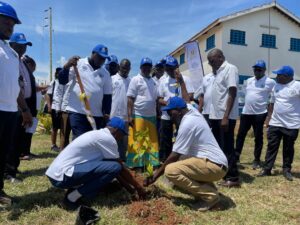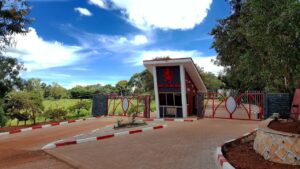
After a recent benchmarking trip to China, the General Manager of Kampala Water, Eng. Mahmood Lutaaya is urging his subordinates at Kampala Water to rethink how they manage operations, warning that reliance on outdated systems could weigh down future growth. Speaking to the commercial and billing analysts for the National Water & Sewerage Corporation on April 28th, 2025, Eng. Lutaaya shared key observations from his visit, where he witnessed firsthand how China’s water utilities are embracing technology and efficiency at scale. From smart metering and solar energy use to fully integrated GIS systems, innovation is no longer optional but rather paramount.
He pointed to China’s aggressive rollout of smart meters, devices that, while initially costly, offer stronger protection against tampering and better tracking within utility systems. He encouraged the National Water & Sewerage Corporation (NWSC) to study the technology closely, starting with commercial clients, before expanding across the board. “Smart meters give utilities control. They’re harder to manipulate and easier to monitor,” he said, adding that magnets, often used to interfere with current meters, pose little, to no threat to the newer models.
The GM also highlighted China’s commitment to self-sufficiency, noting that manufacturing plants he visited were powered largely by solar panels installed on rooftops, reducing dependency on traditional power grids. He therefore challenged NWSC to explore similar solutions, particularly at the Ggaba Water Treatment plant, where solar energy could offset rising operational costs.
Beyond specific technologies, the GM warned that NWSC’s reliance on manual processes was holding the corporation back, and called for an urgent shift toward automation, urging managers not to wait for sweeping overhauls but to start making incremental changes that could build momentum over time. “Staying still should not be an option,” he said. “Even slow movement is progress.”
The call for reform comes as NWSC faces pressure to improve service delivery and financial recovery. While acknowledging the challenges, the GM stressed that innovation should be seen not as a luxury but as a necessary investment for long-term resilience. He also encouraged deeper collaboration with international partners while emphasizing the importance of building local capacity. “We cannot afford to simply import solutions. We must create our own,” he said.


